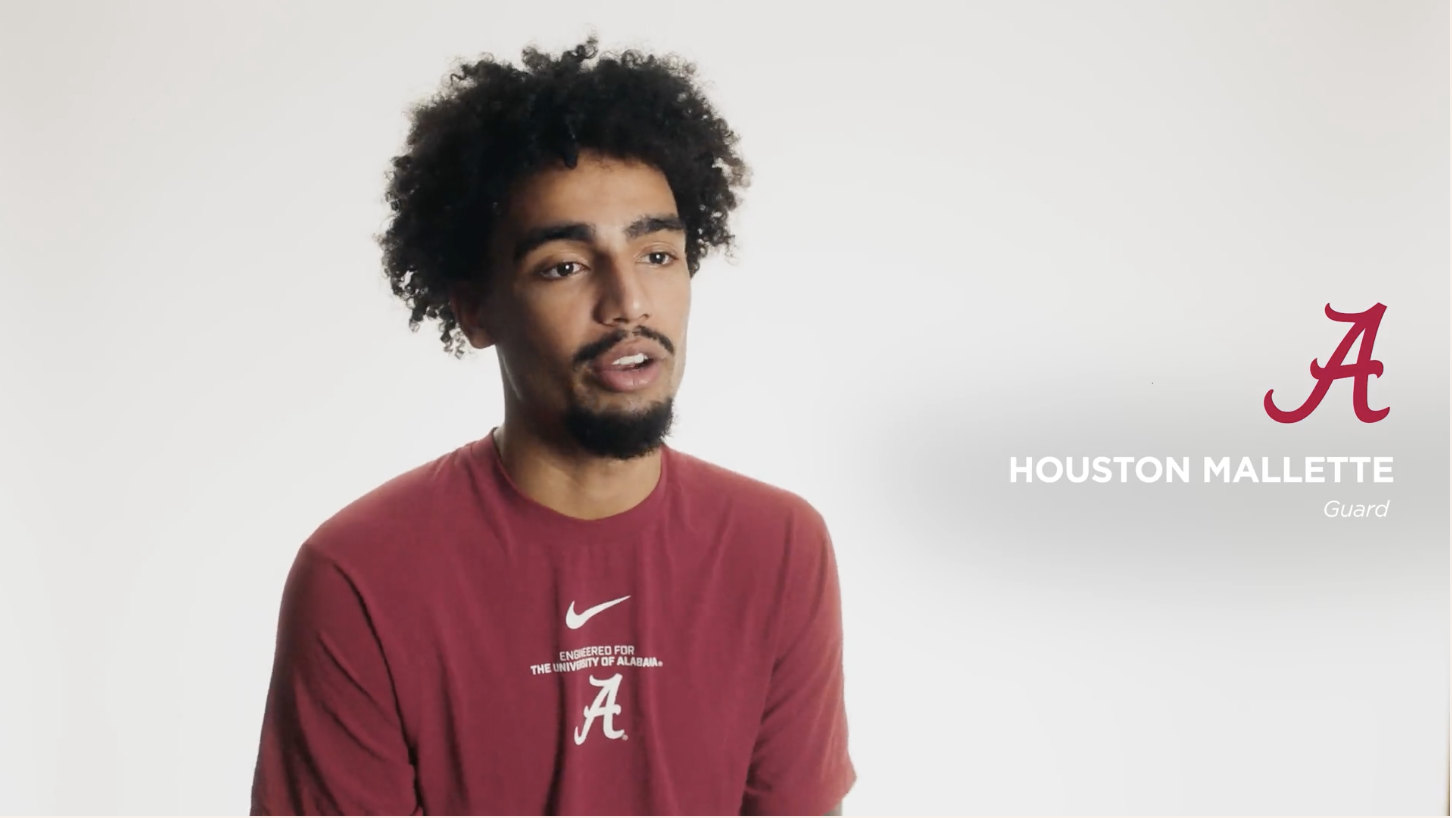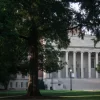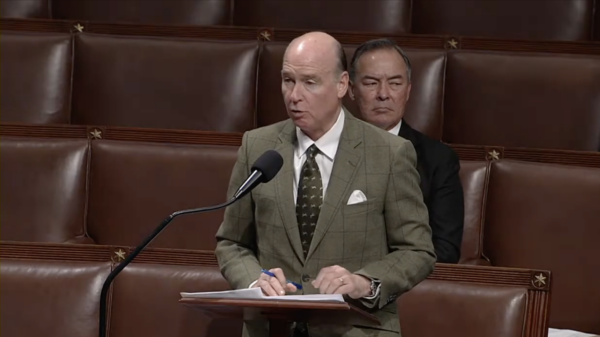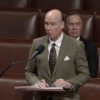A coalition of patient advocacy organizations has teamed up with University of Alabama athletes for an ad campaign advocating for National Institutes of Health research funding.
United for Cures, a coalition formed earlier this year, will air an advertisement during the Iron Bowl highlighting a personal testimony from UA Men’s Basketball player Houston Mallette on why he believes medical research funding is important. The organization is also planning an additional ad with UA Women’s Basketball Player Eris Lester.
COO of the advocacy organization Us Against Alzheimer’s, Russ Paulsen, who serves as chairman of United for Cures, told APR that the campaign is seeking to draw bipartisan attention to the importance of medical research funding.
“There is so much that divides our country today. But sports brings us together, and the desire for cures brings us together,” he said.
“The diseases that people get do not care whether you are an Alabama fan or an Auburn fan, or if you don’t even like sports,” Paulsen added. “What people who have the disease care about is getting a cure.”
Paulsen went on to express gratitude toward the UA athletes who agreed to take part in the campaign.
“These two athletes were amazing,” he said. “They raised their hands right away and said, ‘We would like to tell our stories.’”
In addition to its upcoming ad campaign, United for Cures also organized a booth at UA’s football game last weekend against Eastern Illinois University, where the organization invited students and attendees to sign placards calling on Congress to protect research funding and give testimonies on why medical research funding is important to them.
According to Paulsen, around 30 attendees filmed testimonial videos at the event while hundreds signed placards.
“I was stunned at how many people of all different walks of life came by,” Paulsen said. “It was a great turnout at our first event.”
The organizer said advocating for public investments in NIH is especially important with the increased disruptions the organization’s federal funding has faced in 2025.
NIH funding has seen significant uncertainty in 2025, including slowed funding disbursement, grant terminations and broader cuts to the agency proposed for 2026.
Congress is still negotiating NIH funding for Fiscal Year 2026.
The current U.S. House proposal would give the organization an annual budget of $46.9 billion, while the Senate has proposed a $48.7 billion yearly budget.
Both proposed versions rejected wider funding cuts proposed by the Trump administration’s Office of Management and Budget, which would reduce yearly spending by 40 percent, for a 2026 budget of $27.5 billion.
“We know that there is a real focus on federal spending, and that’s appropriate,” Paulsen said. “But whenever there is a focus on, you know, let’s see if we can save some money. We need to make sure that we don’t take for granted that the saving of money is going to come someplace else.”
“Cures don’t come out of thin air. They come out of years and years and years of hard work,” he continued, adding that most publicly funded medical research helps support universities such as the University of Alabama at Birmingham.
In 2024, Alabama received roughly $380 million in NIH funding, with around $334 million in grants to UAB. A report from United for Medical Research, released in March, found that NIH grants supported roughly $916 million in economic activity throughout the state.
Paulsen went on to express thanks to members of Alabama’s congressional delegation, including U.S. Senator Katie Britt, U.S. Representative Robert Aderholt, U.S. Representative Dale Strong, R-Alabama and U.S. Representative Terri Sewell, D-Alabama, who he described as “strong supporters of NIH funding.”
“I think that we’ve historically had bipartisan, strong support for cures research, but you can’t take anything for granted,” he said.
“The research that is done through universities and funded by NIH has cured so many different kinds of cancers,” Paulsen added. “It has led to breakthroughs in diabetes care, in heart disease, and recently, in the disease that I spent a lot of time on, Alzheimer’s disease, and all of that is due to the NIH, and we just need to make sure that we don’t take that funding for granted.”
Paulsen expressed hope the United for Cures campaign will push Alabamians to contact their elected representatives during the appropriations process and urge them to support strong investments in medical research.
“It’s really simple,” he said. “Call your congressman or your senator, let them know in Washington that this matters to you. It doesn’t just happen. People need to raise their voices, tell their stories, call their members and let them know.”












































